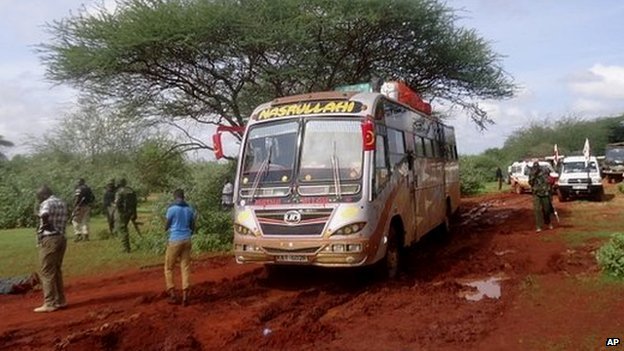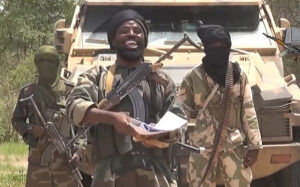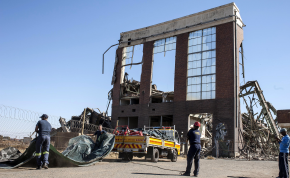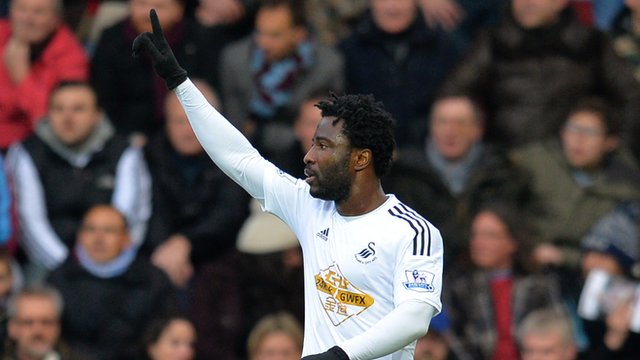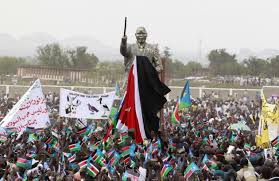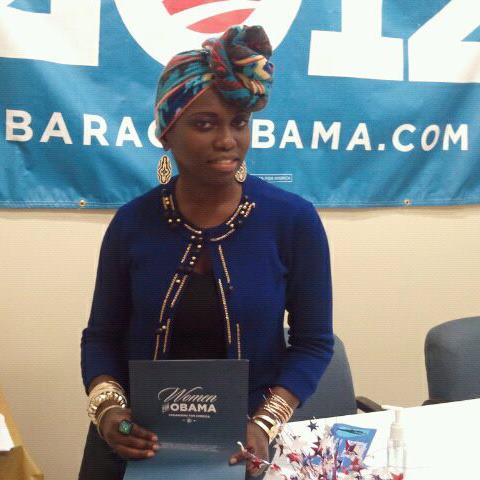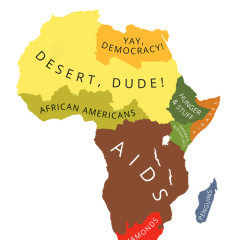Back in 2012, al-Qaeda’s affiliate in North Africa managed to take over two thirds of Mali, achieving mastery over an area three times the size of Britain. France’s brilliantly executed intervention broke al-Qaeda’s grip on that domain in 2013, but there is no prospect of Boko Haram being similarly defeated in Nigeria.
As Shekau proclaims the birth of his new African “Caliphate” – to go with the similar creation of Islamic State (Isil) in the Middle East – three questions arise: How did it come to this? How dangerous is the world’s newest country? And, most vitally of all, what is to be done? The first question is easiest to answer: Boko Haram achieved its advances because of the corruption and incompetence of the Nigerian state. Now that a string of towns has fallen, the failure of the country’s army to stand up to the insurgents is glaring. Partly, that is explained by the fact that the Nigerian armed forces are relatively small: the army has only 62,000 soldiers to defend a country four times bigger than Britain, with no fewer than 180 million people. But that is not the sole reason for the failure. Instead of spending their generous security budget – more than £4 billion in 2014 – on proper weapons and equipment, Nigerian generals tend to pocket the money themselves or blow it on showpiece helicopters that attract generous commissions but are of precious little use against Boko Haram. The result is that the beleaguered 7th Division, which has primary responsibility for fighting Boko Haram, confines itself to mounting a static defence of Maiduguri, the capital of Borno state. Back in 2013, the Islamists managed to destroy most of this unit’s helicopters. Lacking the means to wage a mobile war and crippled by a venal and inept leadership, the 7th Division has made no serious effort to recapture territory from Boko Haram. As for the dangers posed by the birth of Boko Haram-land, the immediate threat is that the new state will become a base for more conquests. That has already happened, with the town of Baga falling last Wednesday and the Islamists launching regular raids over the border into neighbouring Cameroon. Does this pose a wider peril, stretching beyond West Africa? At the moment, the answer is probably not. Boko Haram shares the anti-Western fanaticism of al-Qaeda, but the insurgency stubbornly fails to conform to neat categories. Even its name is not what it seems. Boko Haram is generally taken to mean “Western education is banned”, but “Boko” means book in the Hausa language, so “books are banned” would be a more accurate translation. By implying that their campaign is motivated by an objection to “Western education”, we risk allowing Boko Haram to appear less atavistic than they actually are. Around an Islamist core, the insurgents also consist of local criminals and, indeed, tribal insurgents from Shekau’s own Kanuri-speaking people. Whether these various strands have any interest in striking Western targets beyond Nigeria is open to question. But the lesson from the period of Taliban rule in Afghanistan in the Nineties is that even if that intention does not exist today, it will develop if enough time passes. And that brings us to the question of what can be done? In the end, this is a problem that only Nigeria can solve, firstly by building its army into a force capable of recovering the lost territory. The West can offer training, intelligence and advice. And America’s drone campaign in Pakistan has also demonstrated that a sophisticated effort to suppress terrorism can succeed even without a reliable force on the ground. If Boko Haram continue to advance – and if their atrocities continue – then northern Nigeria could be the next theatre for a drone offensive. The alternative may be to watch the steady expansion of Africa’s newest country. *Source
telegraph


